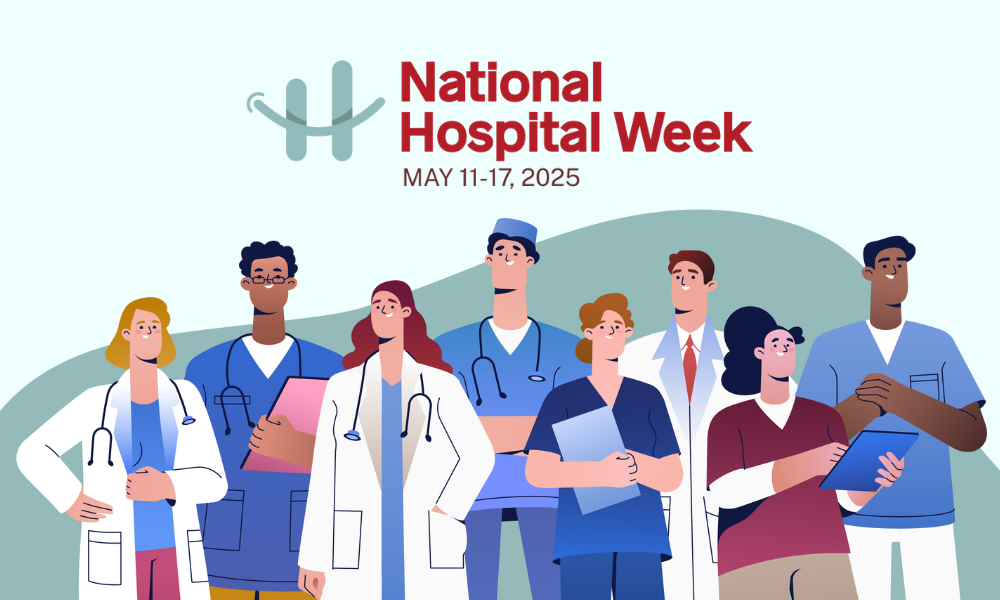Short-term memory GAIN
Welcome to Locums CME 45, Locumpedia’s bi-weekly roundup of news designed to help physicians and APPs maximize the locum lifestyle.
Our lead story: In an insightful blog post, All Star Healthcare Solutions discusses the pros of short-term locum tenens assignments, which offer providers a low-pressure way to explore the lifestyle without fully taking the plunge. Locum providers have the flexibility to set their schedules, choosing when to work and whether to stay local or travel for new opportunities.
Also in this edition: Hayes Locums answers common questions from neurologists considering locums, Barton Associates discusses the pros and cons of locums for residents, and Medscape shares contract mistakes to avoid. Plus, learn how AMA’s new president unites physicians for Medicare reform and discover why 16 of the 20 highest-paid US jobs are in medicine.
Continue your locums education with Locums CME 45 below.
Test Drive the Locums Lifestyle With Short-Term Assignments
October 31, 2024 | All Star Healthcare Solutions
Are you wondering if locum tenens is right for you? Some locum tenens assignments last just a few days, providing physicians and APPs a chance to support hospitals with urgent needs while also using the assignment to test the waters and explore the locums lifestyle.
Some key reasons to consider short-term locum tenens work:
- Patient and Peer Support: Even the occasional weekend assignment can pay big dividends for patients and peer professionals at an understaffed facility. At the same time, you’re learning what it’s like to be a locum tenens provider.
- Location, Location, Location: A lot of locum providers enjoy the work because it allows them to travel. However, if you’ve found your one home sweet home or don’t want to wander too far, you don’t have to pack a bag to make a substantial difference. You can find a locums assignment in-state or just across town.
- The Timing Is Right: You can choose to work full-time for a while and then pull back to moonlight around a permanent position and all sorts of options. Your schedule is yours, and there are many ways to make locums a part of it.
Whether you’re seeking to explore a new career or simply looking for a way to balance work with other life commitments, locum tenens work presents a range of opportunities to suit diverse personal and professional goals. Short-term assignments can be an excellent way to see if locum tenens is the career path for you.
Your Locums Prescription
6 Common Questions Neurologists Ask About Locums
November 7, 2024 | Hayes Locums
Locum tenens neurosurgery is a dynamic career option for physicians at any stage, whether you’re an early-career surgeon building up skills, mid-career and exploring new directions, or nearing retirement and seeking a balanced workload. This career path allows you to maintain your clinical expertise, boost income, and achieve greater control over your schedule, all while sidestepping the administrative challenges of full-time roles.
- Is working locums right for you? Locums can suit physicians at every phase of their careers. Retiring neurosurgeons often choose locum tenens to stay clinically active while enjoying personal time. Mid-career physicians use locums as a bridge between full-time positions, while early-career surgeons take advantage of locums to build experience and financial stability.
- Can you earn enough as a locums? Earnings really depends on your workload and location. A recruiter can help you set realistic income goals, negotiate fair rates, and ensure your financial needs can be met.
- What are the job’s most significant challenges? Starting over at new facilities and maintaining adequate case volumes can be daunting, especially for surgeons. Collaborating with experienced consultants and talking to veteran locums providers can ease the transition.
- Where are locums most often needed? Rural areas and trauma-level facilities are the primary locations for neurosurgery locum providers, offering significant opportunities to impact underserved communities while supporting overburdened full-time staff.
- How can you prepare for a successful assignment? Work with a reliable recruiter to identify assignments that match your needs, ensure you’re credentialed in advance, and speak directly with facilities before accepting roles. Patience and adaptability are essential for finding the right fit.
- What’s a critical skill for locums success? Adopting a “guest mindset” is critical. Locums must adapt to new teams and systems while respecting different practices. Open-mindedness and collaboration are key to thriving in diverse settings.
With the right preparation and support, locum neurosurgery can be an excellent way to balance professional goals and personal priorities.
Pros and Cons of Working Locums as a Resident or New Graduate
November 7, 2024 | Barton Associates
With the physician shortage continuing to grow, locums providers are needed in large numbers. There are pros and cons for residents who want to try locum tenens, which we’ve laid out below. In many cases, residents can moonlight as locums as soon as they have completed their United States Medical Licensing Examination Step 3 and received their medical license. International medical graduates may also find a path to working locums on top of their full-time work requirements. Here’s what residents or new graduates should consider before giving locum tenens a try:
Pros
- Extra compensation: Most medical school graduates have education debt, and the average amount owed is more than $250,000. Medical moonlighting as a locums can sometimes double a resident’s take-home pay, allowing them to begin paying down their debt.
- Diverse training: Locums assignments offer residents various experiences that may help them get a job post-graduation. The short-term nature of these assignments means they’re great trials for making career decisions.
- Flexible schedule: Because locums choose when and where they work, residents can fit assignments into their busy schedules.
Cons
- Restricted access: All residencies restrict students to working no more than 80 hours a week, sometimes making adding medical moonlighting to an already packed schedule difficult. Some programs may prohibit medical moonlighting.
- Competition: Competition can be intense among the few opportunities available to new physicians and APPs. Plus, many hiring managers are not interested in residents because they believe they are not experienced enough to be successful as a locums.
The Truth Behind Two Locums Misconceptions
November 13, 2024 | Medicus Healthcare Solutions
Dr. Paul Hoehner, an anesthesiologist and professor in the field, spoke recently at the American Society of Anesthesiologists Annual Meeting about the advantages of working locum tenens. He argued against two of the most common myths about practicing locums that he hears as a professor.
Myth 1: Locums isn’t ideal for new physicians.
Locums is an excellent opportunity for those just beginning their careers. It allows them to sample practices, work cultures, patient populations, and cities before committing to the one that fits them best.
Myth 2: Locums careers aren’t compatible with academic medicine.
On the contrary, locums allows professors and researchers to maintain their skills with patients and support their peers.
Physician Wellness Retreat
New AMA President: Physicians Unite for Change
November 8, 2024 | American Medical Association
In his first presidential address at an AMA Interim Meeting, Bruce A. Scott, MD, spoke of the physicians’ political power when they organize to advocate for an issue.
Medicare reform, and by extension, Medicaid reform, is the AMA’s top advocacy priority. Payment to physicians has declined nearly 30% since the turn of the century. It’s considered one of the reasons students are changing their minds about continuing in the profession and physicians are leaving it. Working together, physicians can urge Congress to support Medicare physician payment reform. Recent positive results include a bipartisan group of House members introducing the Medicare Patient Access and Practice Sustainability Act of 2024. The measure would eliminate the 3% cut for 2025.
The “AMA Advocacy Impact Report 2024” shares information on what the organization is doing regarding reforming payment, fixing prior authorization, addressing scope creep, and other factors challenging the medical field. There are many ways for physicians to get involved in this work.
Job or Calling: Do Physicians Have to Be Workaholics to Provide Great Patient Care?
November 11, 2024 | Advisory Board
There is a divide among physicians, sometimes along age lines, regarding work hours. Many older physicians were taught to accept punishing schedules to serve their patients. Younger doctors—and some older ones now suffering burnout—demand a better work-life balance. They argue that supporting their well-being makes them better doctors for their patients. Both perspectives would help manage expectations as the healthcare industry changes. The replacement of private practices with health systems, the growth of telehealth and other technologies, and the addition of bureaucratic and administrative tasks to doctor workloads mean that whether a doctor believes they have a job, a calling, or both, the workplace environment is changing.
Doctor’s Notes
16 of the 20 Highest-Paying US Jobs Are Physicians
November 11, 2024 | USA Today
According to the Bureau of Labor Statistics, of the 20 highest-paying occupations in the US, 16 are physicians of various fields and specialties. (The other four are different types of dentists and orthodontists.) The reasons are numerous and due to decisions by the government and healthcare leadership, such as:
- Years of required schooling: Physicians can attend up to 15 years of study, with high related debt.
- Long workweeks: Doctors often work 60–80 hours or more a week, depending on specialty and patient need.
- Provider shortage: Physicians are in demand because the US has fewer doctors per capita than most nations with world standing. One reason is that decades ago, healthcare leaders feared having too many physicians and put a cap on the number of medical schools, available seats in each, and residencies. That long-standing policy has ramifications today.
- High medical costs: Medicare, a federal program, establishes prices for all medical services, and they aim high. Healthcare spending represents nearly 20% of the country’s gross domestic product.
8 Easy-to-Avoid Errors Physicians Make with Employment Contracts
November 6, 2024 | Medscape
The average physician employment contract is longer than 20 pages. When faced with so many details, it is understandable that a new employee could miss something. That oversight can cascade into more issues as the job goes on. Experienced physicians and employment experts offer eight mistakes and how to avoid them.
1. Failing to negotiate: Every salary offer can be negotiated.
2. Not prioritizing work-life balance: Consider the proposed call schedule, benefits, and paid time off.
3. Overlooking the noncompete clause: Make sure it extends no more than half a dozen miles and is limited in scope.
4. Breezing past malpractice insurance and OR time: Discuss lower rates for both.
5. Jumping too fast at a signing or moving bonus: Ensure the bonus is prorated over a few years to protect you from having to repay the total amount if you leave the job early. And if you weren’t offered a bonus…see error #1.
6. Not protecting your intellectual property: Even if you haven’t participated in research or product development or don’t imagine doing so, discuss it with the employer. You never know where your path may lead, and you don’t want to lose out on funding or revenue.
7. Underthinking compensation models: Understand a facility’s incentive structure to know if it meets your priorities. Some can be based entirely on the number of surgeries performed, for example, while others include patient satisfaction scores and peer reviews. Also, confirm whether CMEs will be reimbursed.
8. Not planning an exit strategy: Negotiate a clear and reasonable termination clause.
Overall, think about what you need and want and get comfortable expressing that. And if you need help, hire a lawyer.
How to Restore the Public’s Trust in Healthcare
November 12, 2024 | KevinMD.com
Since the pandemic began in 2020, nearly half of Americans have grown distrustful of the healthcare system. Many are frustrated by unexpected medical bills for services they assumed were free or covered by insurance. Others have faced denied coverage for the care their doctors recommended, leading them to delay treatment. Long wait times for appointments add to the frustration. Concerns about fraud and the dominance of big pharmaceutical companies have further eroded confidence in the system.
Fortunately, there are numerous opportunities for restoring the public’s trust:
- Moving away from fee-for-service models to value-based care
- Leveraging technology to improve access
- Strengthening patient engagement so they are seen as integral parts of the process and not just as recipients of services
- Improving customer service by making it about individuals and relationships
- Using narrative medicine to acknowledge the humanity of both patients and clinicians
Provider Groups Push Back Against 3% Cut to Physician Payments
November 2, 2024 | Fierce Healthcare
Early this month, the Centers for Medicare and Medicaid Services finalized the nearly 3% cut to the Physician Fee Schedule (PFS) in 2025 that it proposed in July. Provider groups, including the American Medical Association, the American Academy of Family Physicians, and the Medical Group Management Association, disagree with these changes.
They say it will make it more difficult for facilities to buy new equipment, retain their physicians, take on new Medicare patients, and even stay open, especially in rural and other underserved areas. They urge Congress to enact a permanent inflation-based annual update to Medicare physician payments. Provider groups agree with some provisions in next year’s Medicare PFS, namely those around telehealth flexibilities.
Sponsored Content
Locum Tenens CV or Resume: What’s the Difference and How to Craft Each for Maximum Results
November 13, 2024 | OnCall Solutions
OnCall Solutions’ online guide to crafting a solid healthcare provider CV or resume offers advice on everything from content and tone to font size and file name. It begins with a helpful distinction between the two documents: A CV is a comprehensive record of your academic and professional history, while a resume is a brief, curated summary of skills and experiences related to a specific job. Both are useful tools for successful locum tenens job searches. Research shows that hiring managers spend an average of only six seconds on their first read of a CV or resume. That means a physician has six seconds to earn an additional, more careful read. To pass the test:
- Prioritize critical information by placing it up top.
- Remove outdated or irrelevant information and replace it with current roles, certifications, and accomplishments tailored to the job.
- Make the document easy to read with page numbers and a footer with your name.









